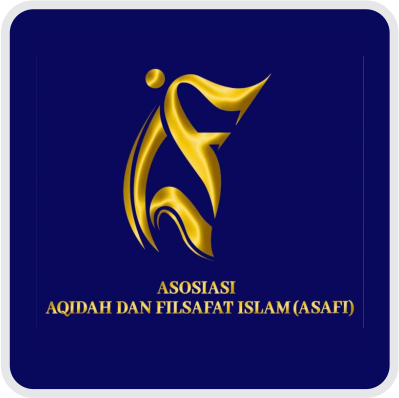Artificial Intelligence in Al-Ghazali's Perspective: Bridging the Concept of Nafs and Machine
DOI:
https://doi.org/10.30983/itr.v2i2.8849Keywords:
Artificial Intelligence, Al-Ghazali, Nafs, Reason, EthicsAbstract
References
’Ali, A., & Muhdlor, A. Z. (1996). Kamus Kontemporer Arab-Indonesia. Yayasan Ali Maksum Pondok Pesantren Krapyak.
Al-Ghazali, I. (1982). Keajaiban Hati. Tintamas.
Ali, Y. (1987). Pengantar Ilmu Tasawuf. Pedoman Ilmu Jaya.
Anam, A. (2022). Konsep Ilmu Menurut Al-Ghazali:Perspektif Filosofis: Aspek Ontologi, Epistemologi, Aksiologi. Progressa, 6(2).
Asmullah, & Iqbal, M. (2022). Kajian Kritis terhadap Pemikiran tentang Jiwa (Al-Nafs) dalam Filsafat Islam. Al-DaulaH, 9(1).
Bakry, M. (2020). Konsep Al-Nafs dalam Filsafat Islam. Jurnal Al-Asas, 5(2), 29–43.
Glasse, C. (2002). Concise Ensyclopedia of Islam. PT. Raja Grafindo Persada.
Hadziq, A. (2005). Rekonsiliasi Psikologi Sufistik Dan Humanistik. RaSAIL.
Hardiman, F. B. (2018). Manusia dalam Prahara Revolusi Digital. Diskursus - Jurnal Filsafat Dan Teologi Stf Driyarkara, 17(2), 177–192. https://doi.org/10.36383/diskursus.v17i2.252
Herwinsyah, H. (2023). Revolutionizing Conversational Artificial Intelligent: Memahami Teknologi Chatgpt. Aksara Semesta.
Junaedi, M. (2017). Paradiigma Baru Filsafat Pendidikan Islam. Kencana.
McCarthy, J. (2007). What Is artificial intelligence. American Scientist, 73(3).
Misnawati. (2023). Chat GPT: Keuntungan, Resiko, dan Penggunaan Bijak dalam Era Kecerdasan Buatan. Prosiding Seminar Nasional Pendidikan, Bahasa, Sastra, Seni, Dan Budaya (Mateandrau), 2(1).
Montag, C., & Diefenbach, S. (2018). Towards Homo Digitalis: Important Research Issues for Psychology and the Neurosciences at the Dawn of the Internet of Things and the Digital Society. Sustainability (Switzerland), 10(2). https://doi.org/10.3390/su10020415
Nasution, M. K. . (2019). Ulasan Konsep tentang Kecerdasan Buatan. Artificial Intelligence, 1(12).
NU.Online. (n.d.-a). Ar-Rum · Ayat 30.
NU.Online. (n.d.-b). Qur’an NU.
Nuryanto, A. (2021). Tantangan Administrasi Publik di Dunia artificial intelligence dan Bot. Jejaring Administrasi Publik, 12(1).
Pabubung, M. R. (2021). Epistemologi Kecerdasan Buatan. Jurnal Filsafat Indonesia, 4(2).
Qadir, C. (1991). Filsafat dan Ilmu Pengetahuan dalam Islam. Yayasan Obor Indonesia.
Rahardja, U. (2022). Masalah Etis dalam Penerapan Sistem Kecerdasan Buatan. Journal Technomedia, 7(2).
Rahmatiah, S. (2017). Pemikiran Tentang Jiwa (Al-Nafs) Dalam Filsafat Islam. Sulesana, 11(2), 31–44.
Ravizki, E. N., & Yudhantaka, L. (2022). Artificial Intelligence Sebagai Subjek Hukum: Tinjauan Konseptual dan Tantangan Pengaturan di Indonesia. Notaire, 5(3).
Rosnawati, R., Ahmad Syukri, A. S., Badarussyamsi, B., & Ahmad Fadhil Rizki, A. F. R. (2021). Aksiologi Ilmu Pengetahuan dan Manfaatnya Bagi Manusia. Jurnal Filsafat Indonesia, 4(2), 186–194. https://doi.org/10.23887/jfi.v4i2.35975
Sihabuddin. (2016). Allamah Tabataba’is View on Nafs al-Amar: An Ontological Basis for the Correspondence of Proposition. Ulumuna: Journal of Islamic Studies, 20(1), 51–68.
Solihin. (2001). Epistemologi Ilmu Dalam Sudut Pandang Al-Ghazali. Pustaka Setia.
Taufik, Z., & Taufik, M. (2023). Tawhid and the Criticism of Modern Humanism: Reflection on Alî Sharî’atî’s Thought. Ulul Albab: Jurnal Studi Islam, 24(2), 283–304. https://doi.org/10.18860/ua.v24i2.23522
Tresnawati, D. G., Satwika, Prihatmant, A. S., & Mahayana. (2022). Artificial Intelligence serta Singularitas Suatu Kekeliruan atau Tantangan. Jurnal Algoritma, 2(1).
Wahyuddin, R., Sucipto, A., & Susanto, T. (2022). Pemanfaatan Teknologi Augmented Reality Dengan Metode Multiple Marker Pada Pengenalan Komponen Komputer. Jurnal Inform Dan Rekayasa Perangkat Lunak, 3(3). https://doi.org/https://doi.org/10.33365/jatika.v3i3.2034
Wahyudin, W., Maimun, A., & Jalil, M. (2019). Islamic Humanism in Indonesia’s Context: Discourse Analysis of Nationality Problems in Indonesia. ULUL ALBAB: Jurnal Studi Islam, 20(2), 302–321. https://doi.org/10.18860/ua.v20i2.6772
Widiyanto, A. (2017). Traditional Science and Scientia Sacra: Origin and Dimensions of Seyyed Hossein Nasr’s Concept of Science. Intellectual Discourse, 25(1), 249–274.
Downloads
Published
How to Cite
Issue
Section
Citation Check
License
Copyright (c) 2024 Hazizah Mutiara Cahaya Ningrum, Ali Nur Mualim, Sudarman Sudarman, Fisman Bedi

This work is licensed under a Creative Commons Attribution-ShareAlike 4.0 International License.


